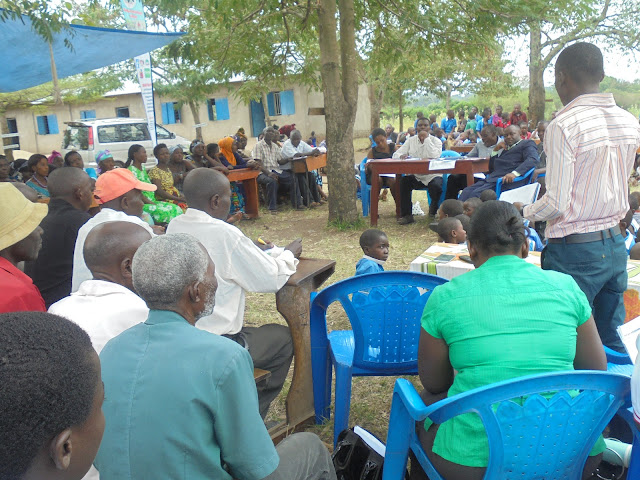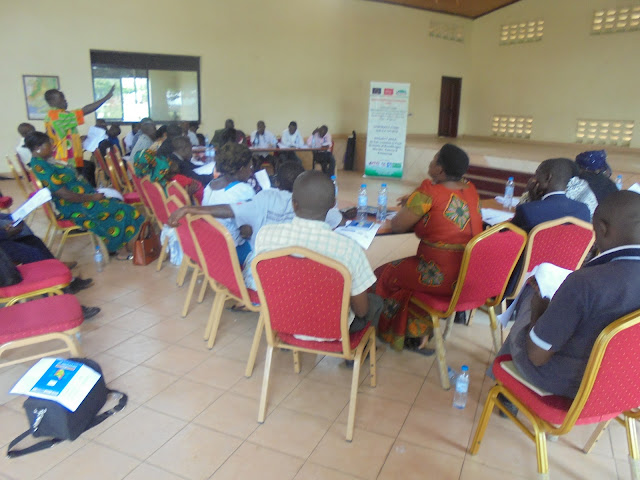Good Hope foundation believes in raising children
that understands, feel comfortable and confident, and hopefully feel
comfortable discussing the violence they pass through with teachers, leaders,
parents and guardians that love and support them. The organization reorganizes the need for
efficient platforms for children to present what they pass through and their
suggestions in regard to prevention of violence against children to their
parents, community members, leaders and teachers and through this approach we
hope will diminish the number of abusers by raising children and community
members that condemn violence against children with the ability to better
empathize and respect the rights of children and adolescents through good
parenting practices and creating safe learning environment for the children at
school.
There has been a complete breakdown in communication
between children and parents and this has continued to impact the academic and
personal growth of the children and the wellbeing of the children at school and
in the entire family.
On 22nd June 2017, Good Hope foundation facilitated
an annual open day at Kiburara primary school as a means of show casing pupil’s
works, interactions and sessions to bring back the spirit of parent-child
communication. The event was for purpose of creating platform for the children
to interact with the parents, community members, teachers and the sub county
leaders on issues of violence against children and school learning environment.
In attendance 136 (103F and 33M) parents, 463 (225M and 238F) children attended
the event including the sub county chief, community development officer, police
officials, teachers, center coordinating tutor as well as the local leaders who
were sensitized on the prevention of violence against children and adolescents
looking at the good parenting practices, parent child communication, and the
learning environment for pupils.
During the event, variety of issues where raised by
children through poems, Music Dance and Drama and among the issues raised
included; the poor sanitation and hygiene at their school mainly the lack of
water of water within and around school as well as inadequate latrine stances,
lack of mid day meals at schools which affects their academic performance and
increasing school dropout, the poor nutrition in the households that increases malnutrition
among the children as well poor performance, child neglect in most of the
families, domestic violence which effects children most, failure of parents to
provide the basic necessities to the children, defilement and early marriages
which has affected girl child education
While
reacting to the children’s communication, parents, teachers and the leaders
made the following suggestions, comments and commitments
From the children’s presentation, parents recognized
that children go through a lot of violations and challenges right from home, on
the way and at school without the care taker’s knowledge which members
attributed to lack of strong bond between children and the care takers which
builds confidence in children to share their issues with the care takers. On
this, parents and other care takers where reminded to always give time to their
children and to develop a positive parent-child communication.
With the increased hunger, parents took it as a
concern that they need to provide meals to the children at school and with the
poor seasons currently, parents were advised not to sale off the little they
will harvest rather keep it to address the hunger problem. On the water
problem, parents committed themselves to complete their payment by the end of
June
Parents were also recommended to always use the
local leaders, religious leaders, and the fellow parents in managing children’s
issues and that they should always report cases of violence against children to
relevant law enforcers
On absenteeism of children and teachers, parents
were informed that following the implementation of the district child
protection ordinance, the sub county leadership have started making follow ups
in the households and gardens arresting children who are not at school. While
the school management was advised to use part of the school land and put up a
banana plantation demonstration to support the teacher’s welfare.
On household economic strengthening, parents were
called upon to join village SACCOS and establish income generating family
initiatives.
Parents were also informed on the sub county bye-law
on nutrition which stipulates mandatory establishment of kitchen gardens per
household.
Children were also advised to respect their parents,
community members and teachers for them to excel and to always resist gifts
from strangers.
 |
| Pupils presenting a play to their parents during the school opening day |
 |
| Pupils of Kiburara Primary School presenting music,dance and drama to their parents |
 |
| Good Hope Foundation project officer explaining to parents what is expected of them as parents |











